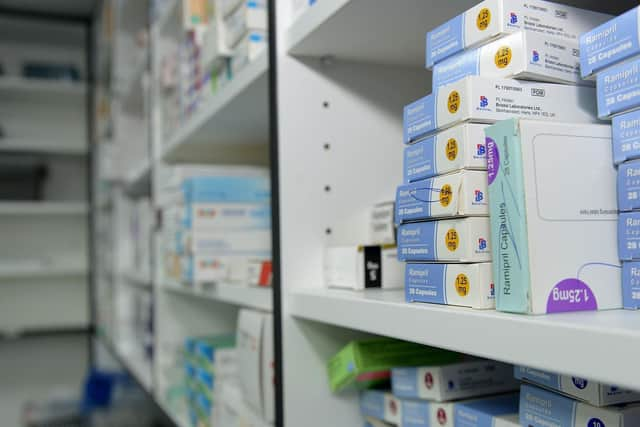Crucial that pharmacy services continue to be available as widely as possible - Mahendra Patel
Since the pandemic, we have seen how many people have kept away from accessing GP services, perhaps thinking they don’t want to add to the burden. The fact some have to wait a long time for an appointment can also be off putting.
The latest GP Patient Survey 2022 showed 16.6 per cent of those surveyed spoke to a pharmacist before making an appointment with their GP, up from 14.9 per cent in 2021.
Advertisement
Hide AdAdvertisement
Hide AdA pharmacist can advise a patient and where necessary, can point them towards seeking medical advice and sometimes with great urgency.


A pharmacist can play an important role where people have been ignoring what they feel are minor symptoms but could be quite serious in the longer term, if left untreated.
If these types of services are not available to access, problems may progress to the point where they become untreatable in the longer term without a positive health outcome. Pharmacists, as part of a regular service, help patients manage their long-term conditions, such as asthma, more effectively.
With NHS waiting lists increasing, it is crucial that pharmacy services continue to be available as widely as possible.
Advertisement
Hide AdAdvertisement
Hide AdWith many high street and community pharmacies having closed or on the verge of closing, more people are likely to suffer unnecessarily.
We’ve seen how, during the pandemic, pharmacists played a vital role in ensuring communities have continued to be well supported in terms of their health needs when most other services were not available, this includes delivering Covid 19 vaccinations and making sure that patients’ medication supply was not unduly disrupted.
With GPs seeing record numbers of appointments, pharmacists can help filter out those who don’t always need to see their doctor.
Since lockdowns, virtual consultations have veered toward some normality.
Advertisement
Hide AdAdvertisement
Hide AdAccording to the latest GP Patient Survey, telephone consultations now make up nearly half (49 per cent) of all GP appointments, a huge rise from 2020 when just under one in 10 consultations was over the phone (9.8 per cent). But some people will always prefer to see a healthcare professional in person and that’s where pharmacy plays a big part.
Elderly patients, people with language barriers and people who might not be IT-literate may find accessing GP online service or video consultations a challenge. Indeed, a significant number of people don’t have access to the internet.
A local pharmacist provides a face-to-face service, requiring no appointment, free of charge.
A further advantage is a pharmacist knows their community and can provide a more tailored service according to their needs. Not only do they know their patient, but they might also know the patient’s wider family.
Advertisement
Hide AdAdvertisement
Hide AdPeople in deprived areas are more likely to access their local pharmacy - what we call the positive pharmacy care law - yet around a third of the closures have been in the most deprived parts of the country.
There needs to be more investment along with upskilling of the wider pharmacy teams to ease the burden on the pharmacist themselves in delivering wider services.
Mahendra Patel OBE is an academic pharmacist and Honorary Visiting Professor at the University of Bradford.